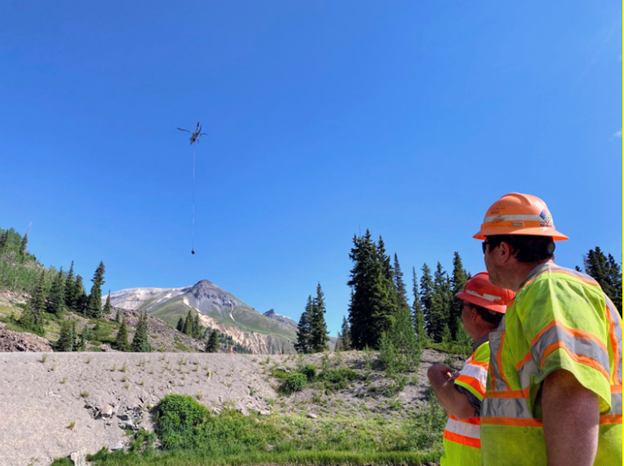CDOT’s Winter Preparation: Expecting the Unexpected
CDOT is strengthening partnerships to stay ahead of weather-related challenges.

Strong partnerships
CDOT recognizes the importance of collaboration with first responders in handling emergencies on the state's roadways — making sure all teams and agencies are on the same page when it comes to incident management. To facilitate seamless coordination, CDOT hosted a Traffic Incident Management conference in early October. This gathering brought together various entities, including the Colorado State Patrol, National Weather Service, Colorado Department of Natural Resources, and the Colorado State Emergency Operations Center, to align strategies and techniques for addressing emergencies on the roadways.
Staying ahead of weather-related challenges is also crucial. To achieve this, CDOT maintains open lines of communication with our partners. Regular weather updates and discussions are held with the Colorado State Patrol, National Weather Service and other key partners. These ongoing dialogues allow CDOT and our partners to be proactive and support one another — anticipating and mitigating potential hazards throughout the winter season.
Avalanche team
Did you know CDOT has a team dedicated to avalanche control and mitigation? CDOT's avalanche team works to minimize the impact of avalanches on highway paths. During the last winter season, the team safely conducted and triggered 488 avalanches. Of those, 203 directly affected roadways.
CDOT's avalanche preparedness efforts include:
- A team of 80 dedicated CDOT and Colorado Avalanche Information Center (CAIC) crew members who are trained and ready to respond to avalanche incidents.
- Rigorous inspections of CDOT-owned avalanche equipment across the state to ensure functionality and readiness before the winter season.
- Collaboration with the Colorado State Patrol, who will also participate in an Avalanche Safety Barn training session in November to enhance their capabilities in handling avalanche-related emergencies.
Our Avalanche Safety Program is an integral part of the CDOT’s winter preparedness efforts. Regardless of the weather forecast, our avalanche team takes a proactive stance, preparing for every winter as if it will be a heavy snow season.
Incident Response team
During the 2022/2023 winter season, CDOT’s Incident Response team responded to 11,863 incidents. This includes major crashes, rockfall, avalanches and more. They are ready 24/7 to respond quickly — protecting motorists and first responders and helping to restore traffic flow as quickly and safely as possible.
Earlier this year, Colorado enacted the Move Over or Slow Down law, which requires a motor vehicle driver to move over one lane from a stationary motor vehicle that has its hazard lights on. If a driver can’t move over a lane, they must slow down and drive at a safe speed while passing the disabled vehicle. This new law aims to protect all stationary vehicles — not just police and emergency vehicles. And while it is imperative year-round, winter tends to see more incidents of disabled vehicles when the snow hits the ground and many drivers find themselves unprepared. The penalty for failing to move over or slow down for a disabled vehicle includes a Class 2 misdemeanor traffic offense, with a possible fine of $150 and a 3-point license violation.
CDOT’s Division of Maintenance and Operations has a lot of tools in our toolbox to make this a successful winter season, but crews are not alone in the effort to keep our highways safe. Motorists also need to ensure they are properly prepared for snow and ice conditions. More often than not, crashes during snow events are caused by motorists who are unprepared or unsure of how to drive in the snow. Motorists are encouraged to stay ‘Winter Wise’ and consider following the winter preparedness list.
“By collaborating and communicating with our partners, we can respond swiftly and effectively to any challenges that arise, ultimately keeping Colorado's travelers safe and our roads open.”
- CDOT’s Division of Maintenance and Operations Director John Lorme
